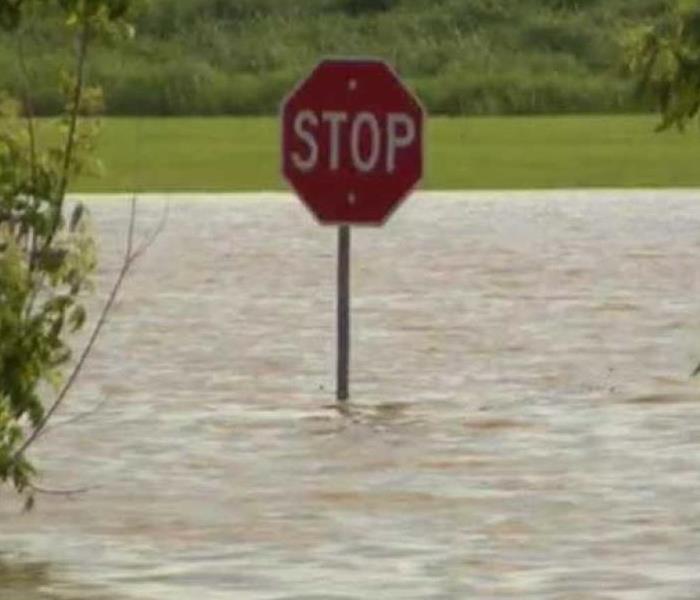Is your property in danger of a flood?
8/30/2017 (Permalink)
In light of Hurricane Harvey we here SERVPRO would like to give some tips and helpful reminders how to protect your home. If you own a property in an area affected by flash flooding, hopefully you have already taken steps to protect it, such as ensuring you have proper landscape drainage systems in place to direct water away from buildings. However, with or without these types of precautions in place, you naturally want to do everything in your power to limit the damage from any flooding that may occur.
Here are some tips for actions you can take to protect your belongings from flood damage, even at the last minute.
Clean Drains: In most cases, the same rainfall that is creating a risk of flash flooding upslope from your property will also fall on your home or business. Make sure you don’t end up with water damage from above as well as below by quickly cleaning your gutters, downspouts, and drains of debris. It doesn’t have to be a perfect job—any cleaning you can do will help.
Move Belongings: The more of your belongings you can move out of harm’s way the better. You may want to roll up rugs and remove furniture or at least put it up on blocks to keep it from getting wet. You should also be careful to unplug all electronics and make sure they are off the floor too.
Check Sump Pumps: If you rely on a sump pump to keep your basement dry, you should be getting regular maintenance for it. But even so, you should check on it when flash flooding is expected. That way, you can make sure the backup battery is fresh and/or replace it as needed.
Turn Off Electricity: If you think any of your electrical outlets may end up underwater as a result of the flooding, it is a good idea to turn off the electricity at the main breaker panel.
Put Action Restoration on Speed Dial: Now that you’ve done everything you can do at the last minute to protect your belongings from damage, you need make sure you’re prepared for any water damage that does occur. The best way to prepare is to put Action Restoration’s number in your phone now. That way, you will be able to reach us quickly once the storm and the flood is over. We can begin coordinating a professional water damage restoration effort in as little as 30 minutes of receiving your call.
Learn what last-minute actions you can take to minimize water damage.
Here in California, our flash flood areas are mainly located in the mountain and foothill areas. When heavy rain follows a period of drought—conditions we have been experiencing already this spring—this creates an even bigger risk of flash flooding because the rainwater is not able to be absorbed quickly enough in the hard-packed ground and instead must run downhill towards the homes and businesses below.
If you own a property in an area affected by flash flooding, hopefully you have already taken steps to protect it, such as ensuring you have proper landscape drainage systems in place to direct water away from buildings. However, with or without these types of precautions in place, you naturally want to do everything in your power to limit the damage from any flooding that may occur.
Here are some tips for actions you can take to protect your belongings from flood damage, even at the last minute.
Clean Drains: In most cases, the same rainfall that is creating a risk of flash flooding upslope from your property will also fall on your home or business. Make sure you don’t end up with water damage from above as well as below by quickly cleaning your gutters, downspouts, and drains of debris. It doesn’t have to be a perfect job—any cleaning you can do will help.
Move Belongings: The more of your belongings you can move out of harm’s way the better. You may want to roll up rugs and remove furniture or at least put it up on blocks to keep it from getting wet. You should also be careful to unplug all electronics and make sure they are off the floor too.
Check Sump Pumps: If you rely on a sump pump to keep your basement dry, you should be getting regular maintenance for it. But even so, you should check on it when flash flooding is expected. That way, you can make sure the backup battery is fresh and/or replace it as needed.
Turn Off Electricity: If you think any of your electrical outlets may end up underwater as a result of the flooding, it is a good idea to turn off the electricity at the main breaker panel.




 24/7 Emergency Service
24/7 Emergency Service
